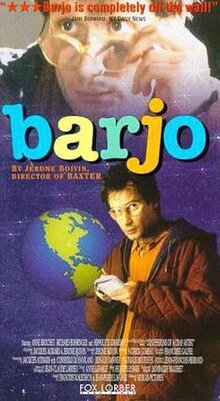
Alfred Elton van Vogt was a Canadian-born American science fiction author. His fragmented, bizarre narrative style influenced later science fiction writers, notably Philip K. Dick. He was one of the most popular and influential practitioners of science fiction in the mid-twentieth century, the genre's so-called Golden Age, and one of the most complex. The Science Fiction Writers of America named him their 14th Grand Master in 1995.

Philip Kindred Dick, often referred to by his initials PKD, was an American science fiction writer and novelist. He wrote 44 novels and about 121 short stories, most of which appeared in science fiction magazines during his lifetime. His fiction explored varied philosophical and social questions such as the nature of reality, perception, human nature, and identity, and commonly featured characters struggling against elements such as alternate realities, illusory environments, monopolistic corporations, drug abuse, authoritarian governments, and altered states of consciousness. He is considered one of the most important figures in 20th century science fiction.
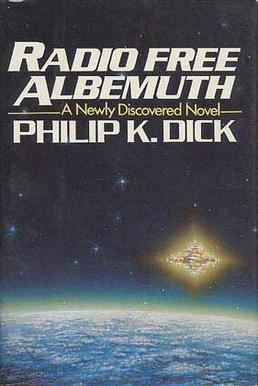
Radio Free Albemuth is a dystopian novel by Philip K. Dick, written in 1976 and published posthumously in 1985. Originally titled VALISystem A, it was his first attempt to deal in fiction with his experiences of early 1974. When his publishers at Bantam requested extensive rewrites he canned the project and reworked it into the VALIS trilogy. Arbor House acquired the rights to Radio Free Albemuth in 1985. They then published an edition under the current title, prepared from the corrected typescript given by Dick to his friend Tim Powers.

Richard Burton Matheson was an American author and screenwriter, primarily in the fantasy, horror, and science fiction genres.

Charles Hoy Fort was an American writer and researcher who specialized in anomalous phenomena. The terms "Fortean" and "Forteana" are sometimes used to characterize various such phenomena. Fort's books sold well and are still in print. His work continues to inspire admirers, who refer to themselves as "Forteans", and has influenced some aspects of science fiction.

Drexel Jerome Lewis Bixby was an American short story writer and scriptwriter. He wrote the 1953 story "It's a Good Life", which was included in The Science Fiction Hall of Fame. It formed the basis of a 1961 episode of The Twilight Zone and was remade in Twilight Zone: The Movie (1983). He wrote four episodes for the Star Trek series: "Mirror, Mirror", "Day of the Dove", "Requiem for Methuselah", and "By Any Other Name". With Otto Klement, he co-wrote the story upon which the science fiction movie Fantastic Voyage (1966), the related television series, and the related Isaac Asimov novel were based. Bixby's final produced or published work so far was the screenplay for the 2007 science fiction film The Man from Earth.

Nick Carter is a fictional character who began as a dime novel private detective in 1886 and has appeared in a variety of formats over more than a century. The character was first conceived by Ormond G. Smith and created by John R. Coryell. Carter headlined his own magazine for years, and was then part of a long-running series of novels from 1964 to 1990. Films were created based on Carter in France, Czechoslovakia and Hollywood. Nick Carter has also appeared in many comic books and in radio programs.
Christopher Hovelle Wood was an English screenwriter and novelist, best known for the Confessions series of novels and films which he wrote as Timothy Lea. Under his own name, he adapted two James Bond novels for the screen: The Spy Who Loved Me and Moonraker (1979).

Confessions of a Crap Artist is a 1975 novel by Philip K. Dick, originally written in 1959. Dick wrote about a dozen non-science fiction novels in the period from 1948 to 1960; this is the only one published during his lifetime.
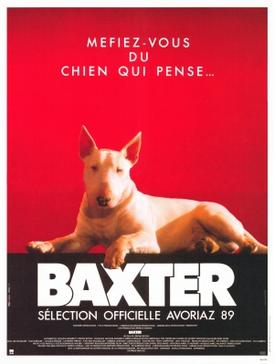
Baxter is a 1989 French horror film directed by Jérôme Boivin. The film is based on the novel Hell Hound (1977) by Ken Greenhall. The title character is a murderous white Bull Terrier who tells the story of his search for a proper master in voice-over narration.

Humpty Dumpty in Oakland is a realist, non-science fiction novel authored by Philip K. Dick. Originally completed in 1960, but rejected by prior publishers, this work was posthumously published by Gollancz in the United Kingdom in 1986. An American edition was published by Tor Books in 2007.

Giacomo Battiato is an Italian film director and writer.

Hearts Divided is a 1936 American musical film about the real-life marriage between American Elizabeth 'Betsy' Patterson and Jérôme Bonaparte, brother of Napoleon. It stars Marion Davies and Dick Powell as the couple. The film was a remake of the 1928 silent film Glorious Betsy, which was in turn based on the play Glorious Betsy by Rida Johnson Young. In real life, they were married in Baltimore, before sailing for Europe. Napoleon annulled the marriage, in spite of the existence of a child, and forced Jerome to marry Catharina of Württemberg, making him king of Westphalia. “Luckily, Hollywood treats the lovers Betsy and Jerome with a little more compassion. The couple is even granted a second chance at happiness by Claude Rains' Napoleon.”
John Baxter is an Australian writer, journalist, and film-maker.

Hippolyte Girardot is a French actor, film director and screenwriter. He is the father of actress Ana Girardot.
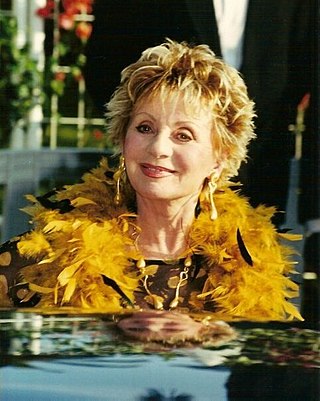
Léonie Juliana, Baroness Cooreman, also known by her stage name Annie Cordy, was a Belgian actress and singer. She appeared in more than 50 films from 1954 and staged many memorable appearances at Bruno Coquatrix' famous Paris Olympia. Her version of "La Ballade de Davy Crockett" was number 1 in the charts for five weeks in France in August 1956. She was born in Laeken, Belgium, where in 2004, King Albert II of Belgium bestowed upon her the title of Baroness in recognition for her life's achievements.
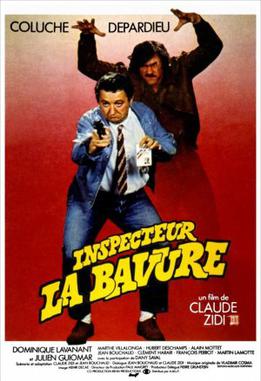
Inspector Blunder is a 1980 French comedy film directed by Claude Zidi.

Science fiction theatre includes live dramatic works, but generally not cinema or television programmes. It has long been overshadowed by its literary and broadcast counterparts, but has an extensive history, and via the play R.U.R. introduced the word robot into global usage.
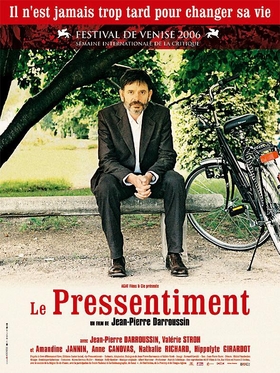
Premonition is a 2006 French drama film directed by and starring Jean-Pierre Darroussin, and based on the novel Le Pressentiment by Emmanuel Bove. It won the Louis Delluc Prize for Best First Film in 2006 and the award for Best First French Film from the French Syndicate of Cinema Critics in 2007.
Le Parfum d'Yvonne is a 1994 romantic drama written by Patrice Leconte and based on the story by Patrick Modiano and directed by Leconte. It stars Hippolyte Girardot, Richard Bohringer and Sandra Majani.
